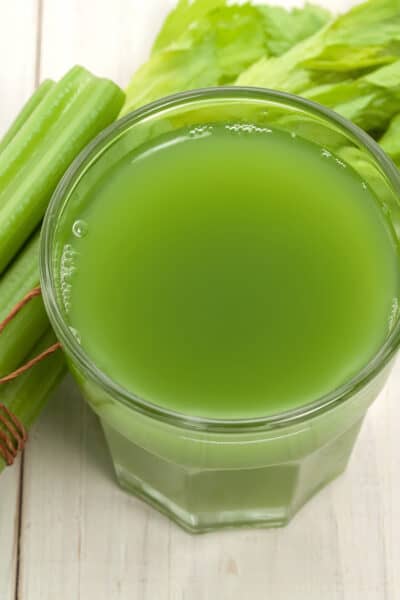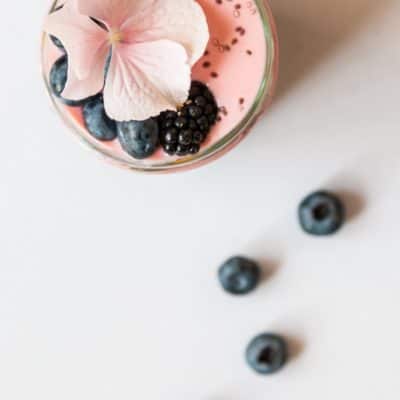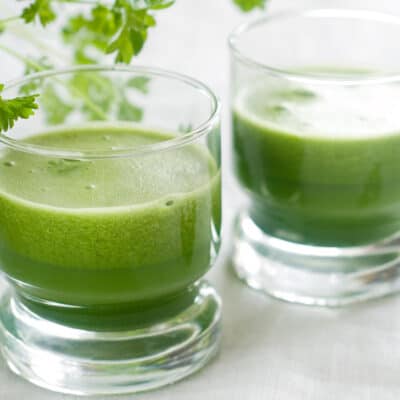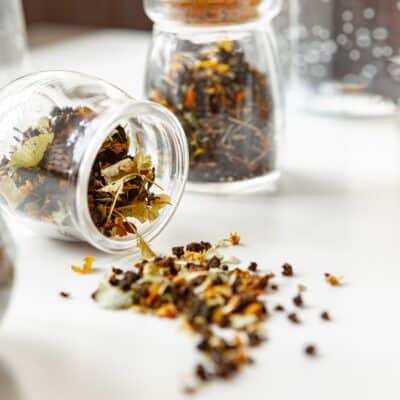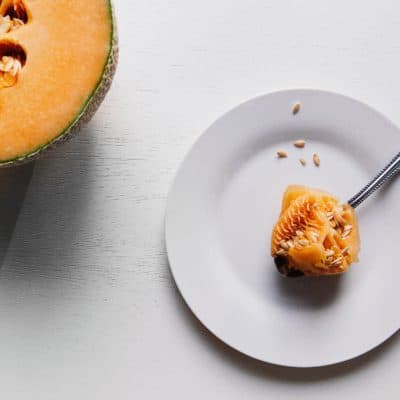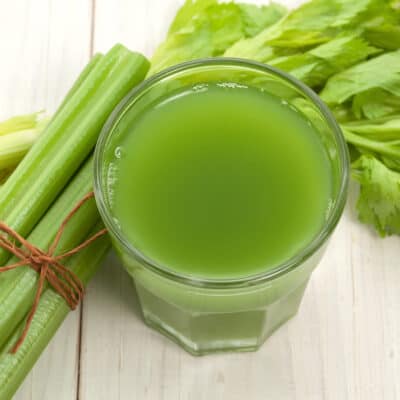Sugar is bad for you! That’s what we have always heard.
Well, yes and no.
In recent years, the popular health trend has been to watch out for sugar – any sugar, any kind, from any source. Sugar has been blamed for weight gain, headaches, diabetes, candida, hypoglycemia, and many more conditions. This has led to a reaction for many health professionals to advise their patients to cut out all sugar – including that which can be found in fruits and vegetables.
But is all sugar the same – and is it all bad? Let’s clear it up below.
YOUR BRAIN ON ADDED SUGAR
We’ve heard over and over that processed sugar isn’t good for us. But do we know how much we are eating – and how it affects us?
The World Health Organization recommends limiting added sugars to 5% of an adult’s daily caloric intake, but the average American’s intake is actually 13% – which is almost 3 times the recommendation! That’s about 17 teaspoons of sugar a day, or 57 pounds a year.
It’s no secret that sugar affects our brains. Research has told us that our brains show addiction to sugar the same way it does to drugs. Actually, this 2007 study has even proven it to be more rewarding for your brain than cocaine. But did you know that sugar can also cause anxiety and depression? Binging on sugar can induce anxiety and lead to dependence. Many research studies also show the link between diets high in sugar and processed foods, and depression – even changes in genes.
The sugary treats that often get blamed for those extra pounds? They are usually also high in fat, which is burdensome to the liver and causes weight gain. (For more information on weight loss, see this post.)
It’s not just affecting us – it’s affecting our children. The brains of children who are obese light up differently in response to sugar, and predispose them to crave sugar throughout their lives. If adolescents regularly eat lots of sugar, it affects their bodies’ regulation of a stress response. In other words, lots of sugar can make teenage years – an already difficult and stressful time – more challenging to walk through.
Okay, we get it. Sugar is bad. So why not cut it out entirely?
IT’S NOT ALL THE SAME
Would you say all water is the same? Filtered water, high-end bottled water, tap water, ocean water, swamp water – there is no way we can say that all water is of the same quality and has the same effects on our health.
We can talk about sugar in the same vein – it’s not comparing apples to apples, so to speak. The recent health trend is to lump sugar into one category and loudly condemn it. However, processed sugar is radically different from the sugar inherent in fruits and vegetables, and our bodies react to them in different ways.
The fundamental fuel for our bodies is glucose – the simple sugar that provides our very cells with the energy they need to function, heal, grow, and thrive. Glucose is what the central nervous system and every organ (including the heart) needs to operate; it’s what builds and sustains muscle (not protein!); and is what damaged tissues and cells need to be repaired.
But there’s glucose listed on the back of a package of pretzels – doesn’t that count?
It’s not the same. Fructose, glucose, sucrose – these can all be different names for processed sugar when on a package. Sugar that has been separated from its fruit source is not an ideal source of fuel. Fruit contains a small amount of sugar – a fraction of what we have been led to believe – and a bountiful amount of nutrients, vitamins, minerals, antioxidants, and other beneficial and healing components.
Here’s the thing – food science is delicate. Even though manufacturers may claim the sugar or concentrate they use is fruit-derived, that doesn’t necessarily make the “fructose” listed on the label healthy. Fruit contains a plethora of other components and nutrients that, in conjunction with the small amount of glucose it offers, science has not been able to fully understand how our bodies process and benefit.
Just as a curbside puddle is not the same as pristine melted snow from the top of a mountain, the processed sugars in frosting, candy, and even “healthy” foods such as granola bars and yogurt cannot be compared to the healing capabilities of pineapple, cantaloupe, apples, pears, etc. The source of what we put in our bodies matters – especially the sugar that is building and fueling our bodies and brains.
WHY YOUR BODY NEEDS FRUIT
Fruit has more healing power than we realize; it is the key to longevity and thriving health. When we are told that we should not eat fruit because of “all the sugar,” we are depleting our bodies of the very thing that will kill off viruses and bacteria in the body and fuel our bodies and brains on a cellular level. As we grow through years in life, our bodies undergo a process called “oxidizing” – which is essentially the deterioration of cells. Fruit gives us the gift of antioxidants, which combat the oxidation process – contributing to a long, healthy life. Research shows that fruit prevents dementia and the risk of neurodegenerative disease and improves cognitive function. It is also beneficial for brain health, and was a vital part of my diet as I was healing my second son’s brain tumors in utero.
In fact, instead of cutting out fruit – we should be doing the very opposite. Multiple research studies have shown that 7-8 servings of fruit and vegetables a day are directly linked to better mood, more happiness, and greater life satisfaction. College students and young professionals reported higher mental health and happiness scores with 8 servings a day, as well as adolescents, middle-aged and older adults. In fact, there was shown to be a direct link between a poor diet (processed food, carbs, and fats) and poor mental health, and a healthy diet (fruits & vegetables) and healthy mental state.
Want glowing skin? The antioxidants found in fruit will smooth and prevent wrinkles and hydrate your skin, increasing its elasticity.
Want to perform at a high level intellectually and physically? Our brains and our very cells actually run on glucose – sugar – not fat. The brain is composed of stored glycogen, and the sugar in fruit feeds our brain. Suffer from brain fog? Your brain is in need of more of the healing, readily available glucose from fruit. And as discussed earlier, it is sugar (and mineral salts) that build muscle.
Want to increase your fertility? Fruit is the key. To bear fruit, one must consume fruit – the vitamins, minerals, phytochemicals, antioxidants, and other incredible compounds in fruit bring vitality to the reproductive system.
Want protection from disease? Look no further. Fruit is antiviral and antibacterial, destroying pathogens in our bodies and healing a range of dis-easements in the body; from insomnia, eczema, and acne to gallstones, ALS, multiple sclerosis, Parkinson’s, and more. Fruit also has the most abundant sources of the highest quality Vitamin C, which is essential for us to continue living.
If you have a sweet tooth and aren’t ready to satisfy it solely on fruit just yet (don’t worry, research says your tastebuds can change), read on.
SWEET ALTERNATIVES
My family loves fruit and baked goods – so what do I do? Here are some back-to-nature sweeteners (besides fruit and vegetables like beets and carrots) that I have used in various dishes:
Dates
Known as “nature’s candy,” dates are an ideal food for improved energy and brain function. Rich in vitamin A and B-complex and minerals such as iron, calcium, manganese, copper, and potassium, they are known to help build bone and muscle strength. Dates contain anti-inflammatory and anti-infective properties which make it an excellent food for those who suffer with chronic infections and autoimmune disorders. They also help to control heart rate and blood pressure, which offers protection against strokes and coronary heart diseases. Dates contain an easily digestible fiber that has been found to help prevent colon, prostate, lung, endometrial, breast, and pancreatic cancers. They are also known to help lower LDL (bad) cholesterol, relieve constipation, improve anemia, and prevent macular degeneration.
Enjoy dates fresh as they are, dried, or blended up with a little water to make a caramel sauce that my kids love to dip apples in! Add to smoothies and salads for an extra boost, or chopped up with nuts, seeds, and spices and pressed into homemade energy bars or other desserts.
Raw Honey
Organic raw honey is not filtered, strained, or heated above 115 degrees Fahrenheit and provides far more benefits than regular honey, as it is full of active enzymes, amino acids, vitamins, minerals, and fatty acids that are vital for keeping the body healthy and for preventing illness and disease. Raw honey contains vitamins such as B-complex and Vitamin C, as well as minerals such as calcium, magnesium, potassium, and zinc. Raw honey has the power to strengthen the immune system, promote digestive health, reduce throat irritation, stabilize blood pressure, calm nerves, relieve morning sickness, balance blood sugar, heal ulcers, purify the blood, fight off colds and flu, soothe sore throats and laryngitis, and flush the kidneys.
Avoid baking with honey and heating it above 117 degrees Fahrenheit, as it will lose many of its enzymes, probiotics, antioxidants, and many more. Research shows that heating honey can actually have a negative effect on our bodies when heated. Use in sauces, dressings, raw desserts, to sweeten fluids (such as lemon-honey-ginger water or herbal tea).
Pure maple syrup
Does anyone else love this on their [vegan and gluten-free] pancakes?! Pure maple syrup is flowing with high-quality sugar, minerals, vitamins, and other nutrients that quickly boosts the liver. Unlike honey, maple syrup is versatile enough to keep its chemical and nutrient composition when heated, so feel free to use it as a substitution for sugar in baking recipes. It can also be used to sweeten sauces and homemade frosting… get creative with the possibilities! Be aware of the quality you are buying – Aunt Jemima will just have to become estranged from your family’s diet.
Rapadura sugar
This unrefined sugar is pure, raw sugarcane with naturally occurring molasses that gives it a caramel color and flavor. It can be another wonderful substitute for sugar in baking recipes (such as these muffins!), but best not to be consumed in large amounts every day. Be sure to buy a high-quality brand to ensure its purity.
Find some of my family’s favorite sweet desserts here! We also love Lorena’s Blender Ice Cream and this Wild Blueberry Lavender Ice Cream!
BE EMPOWERED
It is nearly impossible to walk down a grocery store aisle and not find a package of food without processed sugar. However, my hope is that this information will help inform and empower the food choices you make for yourself and your family. A study showed that shoppers who read the ingredient label consumed healthier ingredients, so I encourage you to look on the back of the package, and/or point the cart towards the produce section of the grocery store. Explore some new recipes for your family that are health-boosting and delicious, and let go of fruit fear. Thriving health is possible and makes life so much sweeter.
Ignite the Healer within,
Amber Bodily
P.S. Want to learn more about how to transform what you eat? Check out my online course Radical Healing: A Step-By-Step Guide to Reclaiming Your Vibrance.
*Disclosure: This post contains affiliate links. At no cost to you, I may earn a small commission from the sale of these products. This assists my work in supporting others on their healing journey to health.



